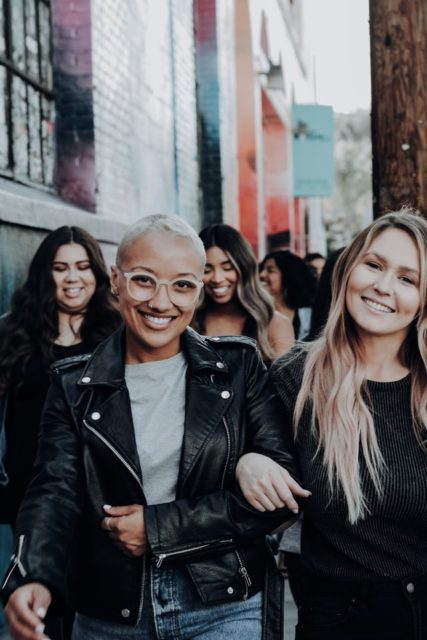Making friends – coming across like-minded people is sometimes hard, especially when you enter a new territory where you don’t know anyone. However, college years are the best time to find your lifelong friends and grow the network that would benefit you in the future. All it takes is the right timing and being ready to open up and listen to people.
The first day of college is a great opportunity to find individuals you can connect with. It ain’t easy for sure: some people will stay with you, and others will be there only for a brief moment. You have to accept that friendship depends on the efforts of both parties, and forced relationships are usually no good. The truth is that you should be polite and respect other people’s boundaries regardless of whether you become friends with them or not.
Here are some tips on what you should pay attention to when making friends on your first day in college…
Make a Good First Impression
During college years, you are still figuring out who you are and what you like. It’s not easy to make a spectacular introduction and let people know your true self right away. Yet, a good start will encourage them to approach you.
If you have problems with presenting yourself, try to rehearse beforehand what you would like to highlight. Don’t try too hard to appeal to everyone and let people know you. It may sound trivial, but the best strategy is to be yourself. It is better to avoid lying about being someone you’re not.
The first impression is usually about your smile, posture, and tone of voice. People find it easier to relate to someone who smiles and has an open posture. Your body language can easily reflect your stress, but you may conquer it and show your confidence.
Making Friends – Keep It Up
The most tricky part of making friends in college is not to jump to conclusions too soon. The second impression is about trying to establish healthy boundaries with your peers. It is a good idea to ask someone to grab a cup of tea or coffee and share your thoughts about the first day. Such conversations help us learn more about each other.
People tend to sugarcoat reality, and someone who appeared easygoing and friendly at first may be more complex than that. Therefore, don’t expect anyone to open up right away. You are also not obliged to reveal your every secret. Similar to how college students write the compare and contrast essay outline, people can quickly compose a list of things they like and don’t like about others.
The second impression is about your interpersonal communication skills. You may need to work and revise your active listening and empathy skills. Ask yourself these questions:
- Am I listening to people or waiting for them to finish talking so I can say something?
- Do I respect others’ personal space and emotions?
- Do I read someone’s body language correctly?
- Do they hear me and what I have to say?
No one is born with perfect communication skills. It is something each one of us can learn and improve to become better friends. Don’t worry if first conversations with your peers will be a bit awkward. Everyone is scared to sound weird, so the tension can be almost visible.
Be Proactive
Sitting at home or in a dorm won’t bring you many new acquaintances. Sign up for campus events and volunteer to organise something where you can show your leadership and creative skills. It is one of the best ways to create a network of your future friends and colleagues as you see them involved in a team project.
During classes, you can make friends by suggesting to do homework together. For example, ask a person “Do you want to study together, while I write my essay for tomorrow?”. Many students find it easier to have a company to do home assignments rather than fight with procrastination alone. At the same time, one of the most obvious ways of making friends is to share common interests and go to events outside of college.
Consider Red Flags
We all want to make friends as quickly as possible. However, we also may dismiss some problematic behaviour of new people in our lives. It is easy to fall victim to someone’s charm or overlook reg flags that scream to us “toxic friendship.”
How do you recognise them and avoid making friends with the wrong people?
- A person masks subtle racism or any -ism as a joke. You can hold people accountable for their words and break the cycle of micro-aggressive and discriminatory behaviour toward someone. People can change, and if you see that an individual has truly improved their behaviour, you may give them a second chance.
- A person feeds on drama, which has nothing to do with theatre courses. Don’t let petty conflicts affect you. If your new friend appreciates drama and confrontation more than other ways of interaction, walk away from them.
- A person tries to drag you into any risky activities or reckless behaviour. Leave the situation without any explanations. You don’t have to put your future on the line because someone wants to add spice to their life.
- A person has no clear understanding of your boundaries or tries to insult you. Just stay away from people who try to belittle you or your feelings.
Wrapping Up
Making friends is hard, and a perfect formula doesn’t exist. You may hear suggestions to “make compliments” or “be helpful to someone,” but it is counterproductive. Never say something you don’t mean or compromise your comfort for the sake of being convenient for people.
You are a person with boundaries and standards to which you hold yourself accountable too. Building friendship on a solid ground of mutual respect and understanding leads to decent and everlasting relationships.






